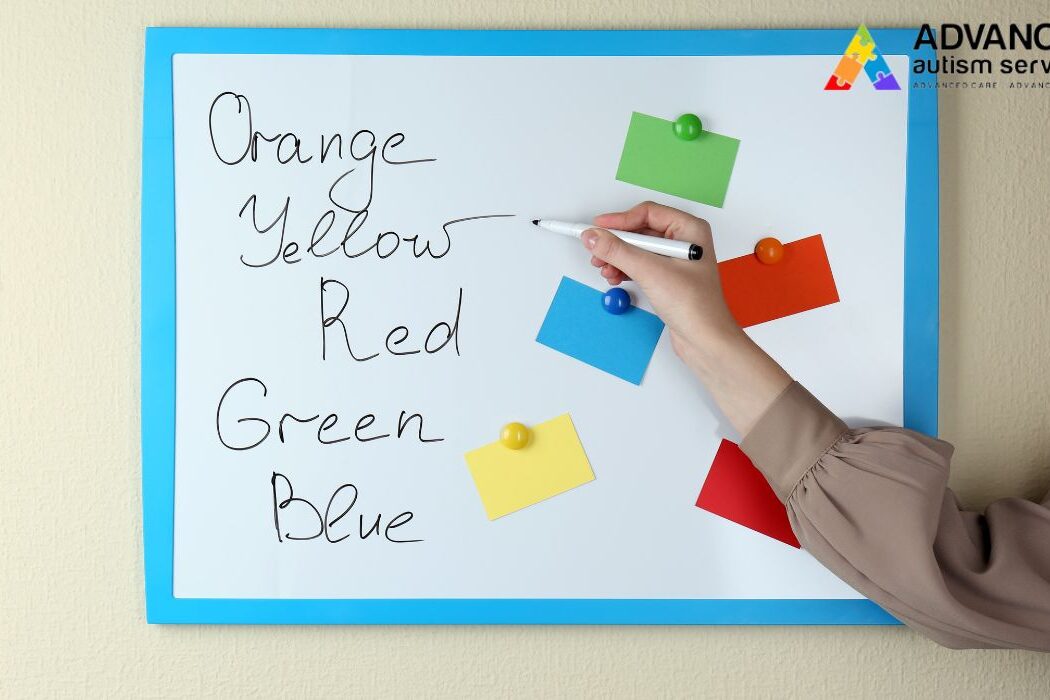Applied Behavior Analysis (ABA) therapy is a scientifically proven and widely used approach for individuals with autism spectrum disorder (ASD) and various developmental disabilities.
ABA therapists are pivotal in helping these individuals improve their social, communication, and behavioral skills.
However, in an increasingly diverse world, ABA therapy positions must prioritize cultural competence.
Let’s explore the significance of cultural competence in ABA therapy positions, its benefits, and how practitioners can enhance their cultural competence to provide more effective and inclusive care.
Basics of ABA Therapy
ABA is a systematic and evidence-based approach to understanding and modifying behavior.
It is rooted in the principles of behaviorism, which involve analyzing behaviors, identifying their functions, and implementing interventions to promote desirable behaviors while reducing unwanted ones.
ABA therapy is highly individualized, focusing on each client’s unique needs and goals.
ABA therapy positions typically involve working with individuals on the autism spectrum or those with developmental disabilities.
Therapists use positive reinforcement, prompting, and data collection techniques to help clients acquire new skills, improve communication, and manage challenging behaviors.
The Role of Cultural Competence in ABA Therapy
Cultural competence refers to the ability of ABA therapists to interact with individuals from diverse cultural backgrounds.
In this context, culture encompasses not only race and ethnicity but also factors such as religion, language, gender, socioeconomic status, and more.
Being culturally competent in ABA therapy positions is crucial for several reasons:
Promoting Inclusivity: Culturally competent ABA therapists create an inclusive and welcoming environment for clients and their families.
They recognize and respect cultural differences, making clients feel valued and understood.
Enhancing Communication: Effective communication is essential in ABA therapy.
Cultural competence helps therapists understand clients’ communication styles, preferences, and nonverbal cues, leading to more productive sessions.
Tailored Interventions: Different cultures may have unique perspectives on disability and appropriate interventions.
A culturally competent therapist can adapt ABA strategies to align with the client’s cultural values and beliefs.
Building Trust: Building a solid therapeutic relationship is fundamental to the success of ABA therapy.
Cultural competence fosters trust between the therapist, client, and their family, increasing the likelihood of positive outcomes.
Reducing Disparities: Cultural competence can help address disparities in access to and quality ABA therapy services among diverse populations.
It ensures that all individuals receive the best care regardless of their cultural background.
Challenges in Achieving Cultural Competence
While the importance of cultural competence in ABA therapy positions is evident, there are challenges that practitioners may face:
Limited Cultural Exposure: ABA therapists may need more exposure to diverse cultures, hindering their understanding of cultural nuances and norms.
Implicit Bias: Unconscious biases can affect how therapists perceive and interact with clients from different backgrounds.
These biases may lead to unintentional discrimination.
Lack of Training: Many ABA therapy training programs may need sufficient education on cultural competence, leaving therapists ill-equipped to address cultural diversity effectively.
Language Barriers: Language differences can create significant communication and intervention implementation challenges.
Therapists must find ways to bridge these gaps.
Ways to Enhance Cultural Competence in ABA Therapy
Fortunately, there are several strategies that ABA therapists at Advanced Autism employ to enhance their cultural competence:
Self-Reflection:
ABA therapists embark on a journey of self-reflection to pinpoint their biases and prejudices.
This introspection serves as the initial stride toward achieving cultural competence.
At Advanced Autism, we instill a culture of continuous learning, encouraging therapists to remain receptive to new cultural insights.
Artistic Training:
Therapists actively seek cultural competence training and workshops, engaging in a process that unveils the intricacies of various cultures.
This artistic approach to learning fosters the development of cross-cultural communication skills.
At our facility, we motivate therapists to expand their knowledge base and cultivate sensitivity toward the unique needs of each individual.
Cultural Consultation:
This collaborative approach provides invaluable guidance and diverse perspectives on culturally sensitive issues and interventions.
Our commitment to merit-based staffing ensures a team that reflects the beautiful tapestry of diverse experiences.
Linguistic Proficiency:
Recognizing the power of language, our therapists prioritize linguistic proficiency to bridge communication gaps.
By ensuring that therapists are well-versed in the languages our clients and their families speak, we pave the way for meaningful and culturally attuned interactions.
Immersive Cultural Experiences:
ABA therapists immerse themselves in cultural experiences, actively participating in events and celebrations that hold significance for our clients.
This immersive approach builds rapport and deepens therapists’ understanding of the cultural contexts shaping clients’ lives.
Flexibility in Intervention Strategies:
Therapists embrace flexibility in intervention strategies, acknowledging that a one-size-fits-all approach is inadequate in a culturally diverse setting.
Our commitment to adaptability ensures that interventions align with our client’s unique cultural backgrounds and values.
Inclusive Family Involvement:
Acknowledging the integral role families play, our therapists actively involve them in the therapy process.
This collaborative effort respects cultural perspectives and ensures that therapy plans are culturally relevant and sensitive.
Community Partnerships:
ABA therapists forge partnerships with community organizations, tapping into local resources that provide insights into specific cultural practices.
This collaborative spirit enriches therapy sessions and strengthens the connection between therapists and the communities they serve.
Tailored Assessments:
In the pursuit of cultural competence, therapists develop and utilize assessments tailored to consider cultural nuances.
This personalized approach ensures a comprehensive understanding of behavior within an individual’s unique cultural background.
Ongoing Cultural Competence Evaluation:
A commitment to ongoing evaluation of cultural competence is embedded in our practice.
Regular assessments and feedback loops help therapists refine their approaches, ensuring that cultural competence remains dynamic and integral to our therapeutic landscape.
Benefits of Culturally Competent ABA Therapy Positions
Cultural competence in ABA therapy positions offers numerous benefits for both therapists and clients:
Improved Client Outcomes: Culturally competent therapists are more likely to develop effective interventions that align with the client’s cultural values, leading to better outcomes.
Enhanced Therapist Satisfaction: Culturally competent Therapists often report greater job satisfaction and fulfillment, as they can connect more meaningfully with their clients.
Reduced Misunderstandings: Cultural competence minimizes misunderstandings and misinterpretations, reducing frustration and anxiety for clients and therapists.
Increased Client Retention: Clients are more likely to continue therapy when they feel understood and respected, leading to longer-lasting therapeutic relationships.
Community Trust: ABA therapy practices prioritizing cultural competence are more likely to gain the trust and support of their communities.
Conclusion
Cultural competence is an essential aspect of ABA therapy positions that must be considered.
As the field of ABA therapy continues to grow and diversify, it is incumbent upon practitioners to prioritize cultural competence.
By doing so, they can provide more effective and inclusive care, improve client outcomes, and build stronger relationships with clients and their families.
Achieving cultural competence may require ongoing self-reflection, training, and collaboration. Still, the benefits for therapists and clients are well worth the effort.
Ultimately, cultural competence is not just a professional responsibility but a fundamental ethical imperative ensuring equitable access to ABA therapy for all individuals, regardless of their cultural background.
At Advanced Autism Services, we recognize the transformative power of cultural competence in ABA therapy.
Our commitment to providing In-Home ABA Therapy services is rooted in evidence-based practices and fostering a profoundly respectful and inclusive environment for children diagnosed with Autism Spectrum Disorder and their families.
For parents and caregivers, we encourage active participation and dialogue to ensure that the therapy provided aligns with your child’s cultural values and needs.
Join us in positively impacting the lives of parents, caregivers, and children with Autism.
FAQs
What is ABA therapy, and how does it relate to cultural competence?
ABA therapy is a behavior-based approach used to help individuals with autism and developmental disabilities.
Cultural competence in ABA therapy involves understanding and respecting clients’ cultural backgrounds to provide more effective care.
Why is cultural competence essential in ABA therapy?
Cultural competence is crucial in ABA therapy because it promotes inclusivity, enhances communication, and ensures that interventions are tailored to meet clients and their families’ cultural needs and preferences.
How can ABA therapists enhance their cultural competence?
ABA therapists can enhance their cultural competence through self-reflection, artistic training, seeking cultural consultation, learning relevant languages, and engaging with diverse communities.
What are the benefits of being culturally competent as an ABA therapist?
The benefits include:
- It improved client outcomes.
- It enhanced therapist satisfaction.
- Reduced misunderstandings.
- It increased client retention.
- Greater trust within the community.
Are there specific cultural considerations when working with clients from different backgrounds in ABA therapy?
Cultural considerations may include understanding religious practices, dietary restrictions, communication styles, and attitudes toward disability and therapy.
How can ABA therapists address language barriers in therapy sessions?
ABA therapists can address language barriers by learning key phrases in the client’s language, using translation services, and working with interpreters when necessary.
What steps can ABA therapy practices take to promote cultural competence among their staff?
ABA therapy practices can promote cultural competence by offering cultural sensitivity training, encouraging staff to engage with diverse communities, and creating a culturally inclusive work environment.
How can ABA therapists balance cultural sensitivity with the standardized nature of ABA interventions?
ABA therapists can balance cultural sensitivity by adapting interventions to align with the client’s cultural values and beliefs while still following the core principles of ABA therapy.
What should ABA therapists do if they encounter cultural practices or beliefs that conflict with therapy goals?
ABA therapists should engage in open and respectful communication with the client and their family to find alternative solutions that respect cultural practices and therapy goals.
Are there any ethical guidelines or codes of conduct for ABA therapists regarding cultural competence?
Some professional organizations, such as the Behavior Analyst Certification Board (BACB), provide guidelines and standards related to cultural competence for ABA therapists.
How can families ensure that their ABA therapy provider is culturally competent?
Families can inquire about ABA therapy providers’ training and cultural competence initiatives, ask for references, and seek feedback from clients from similar cultural backgrounds.
Can cultural competence in ABA therapy improve community acceptance and support for individuals with autism and developmental disabilities?
Yes, cultural competence can lead to greater community acceptance and support by fostering positive relationships between ABA therapists and families from diverse backgrounds, ultimately benefiting the individuals receiving therapy.




